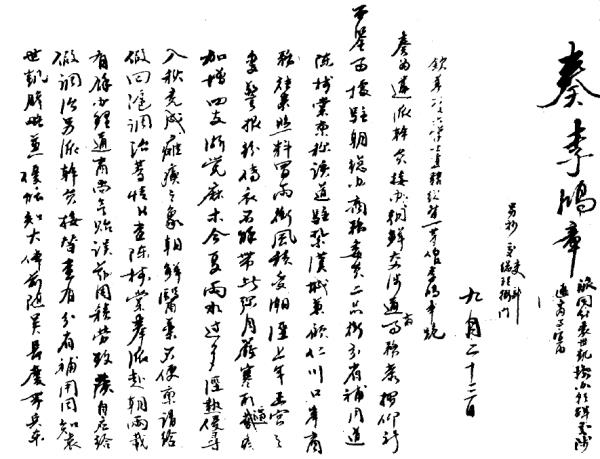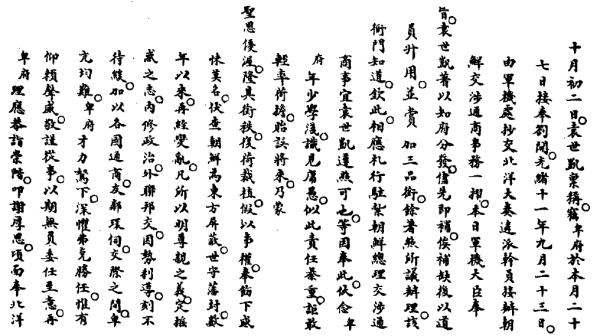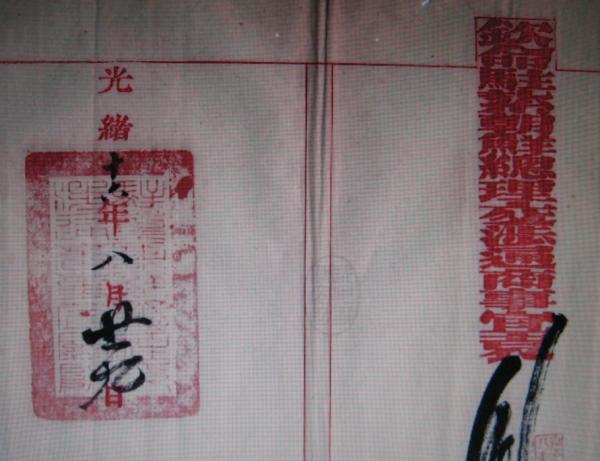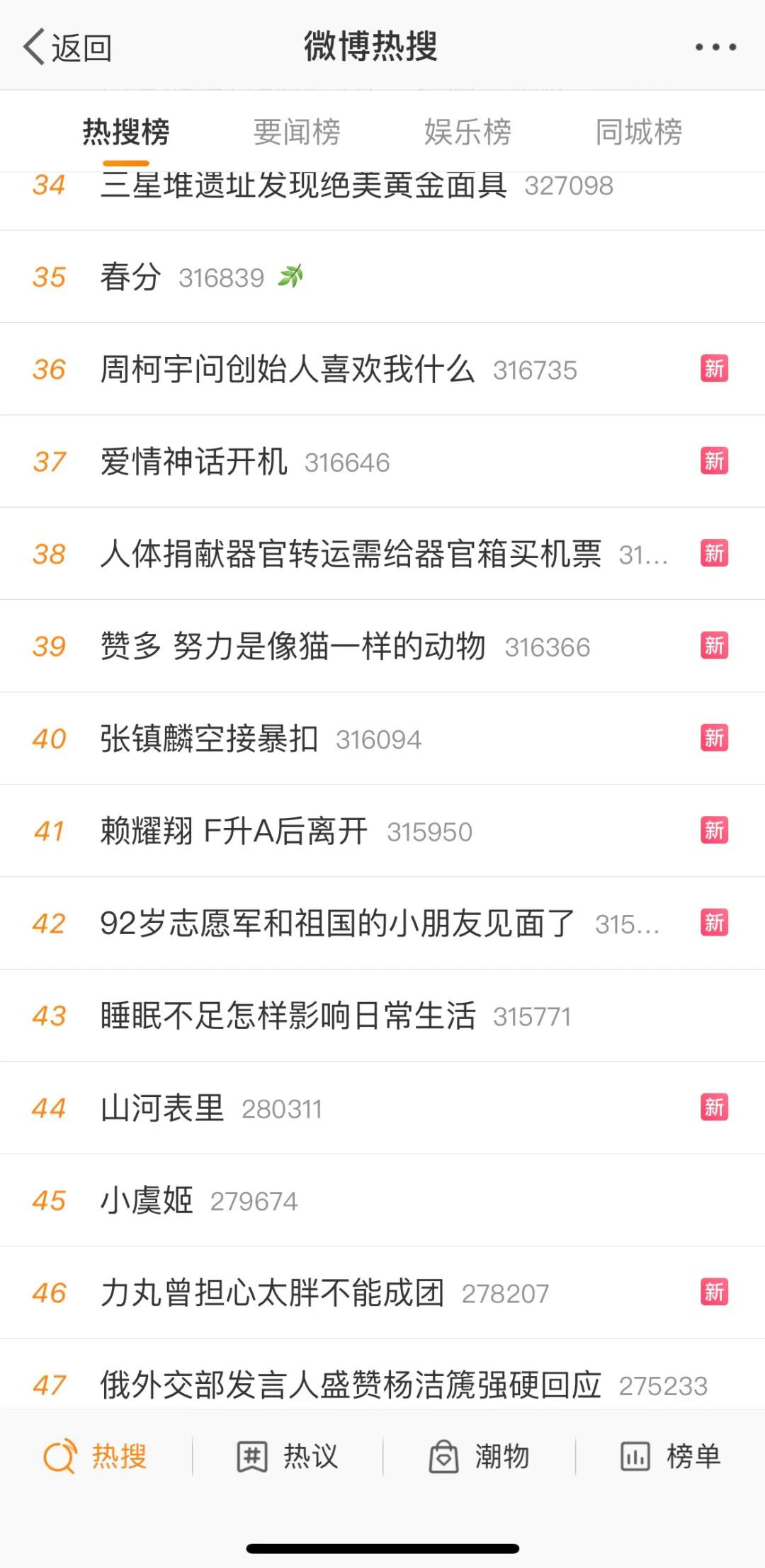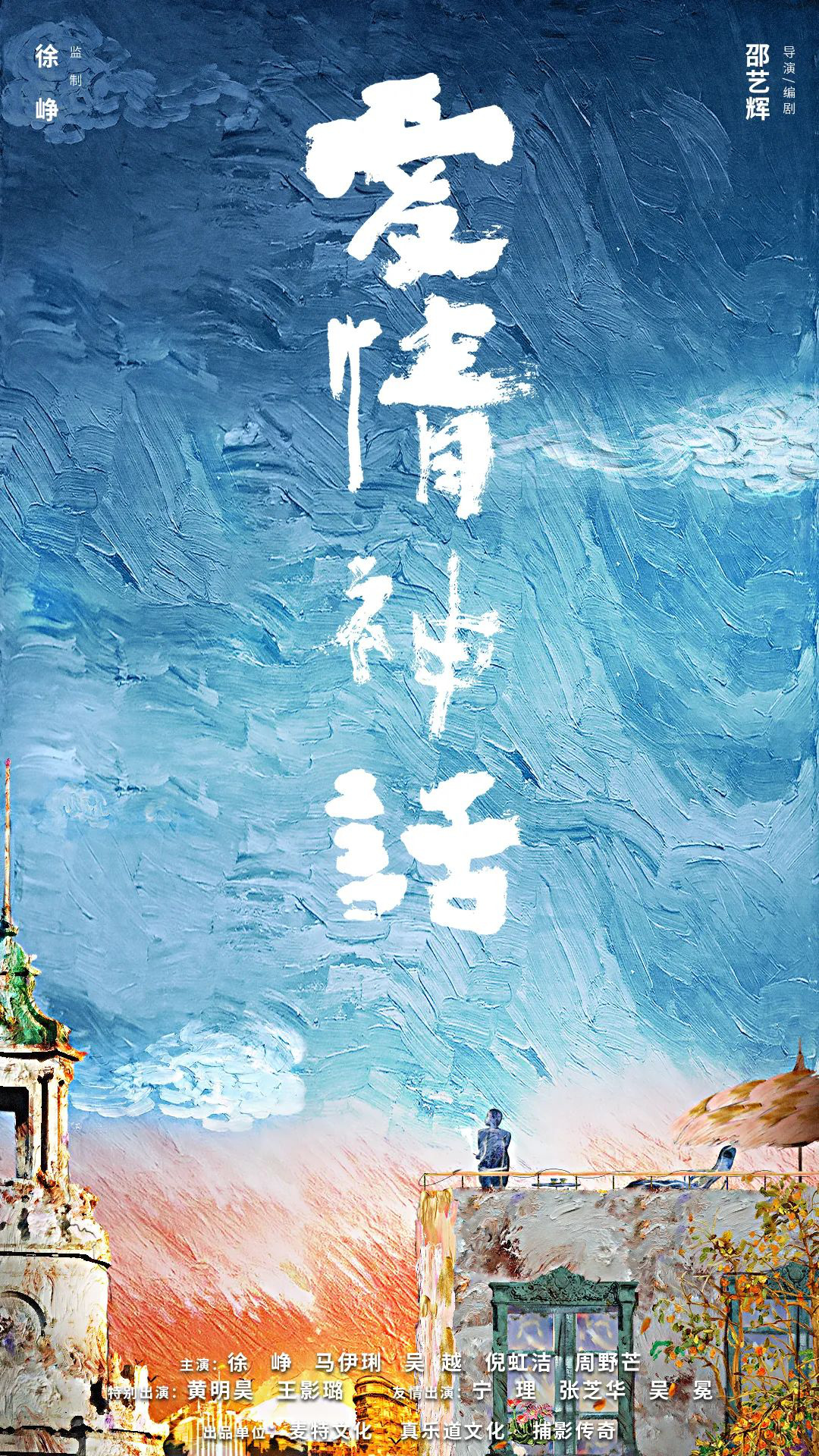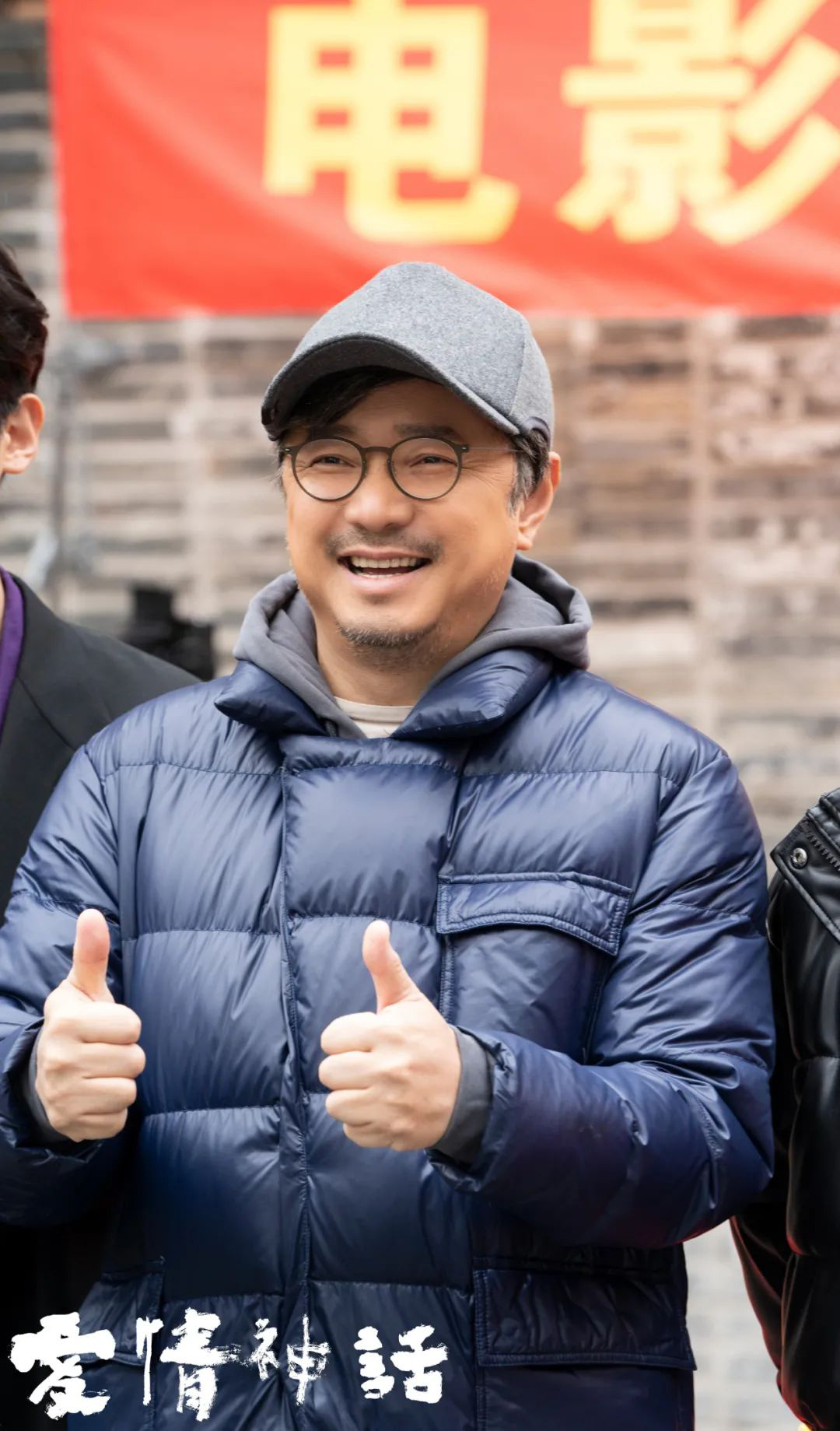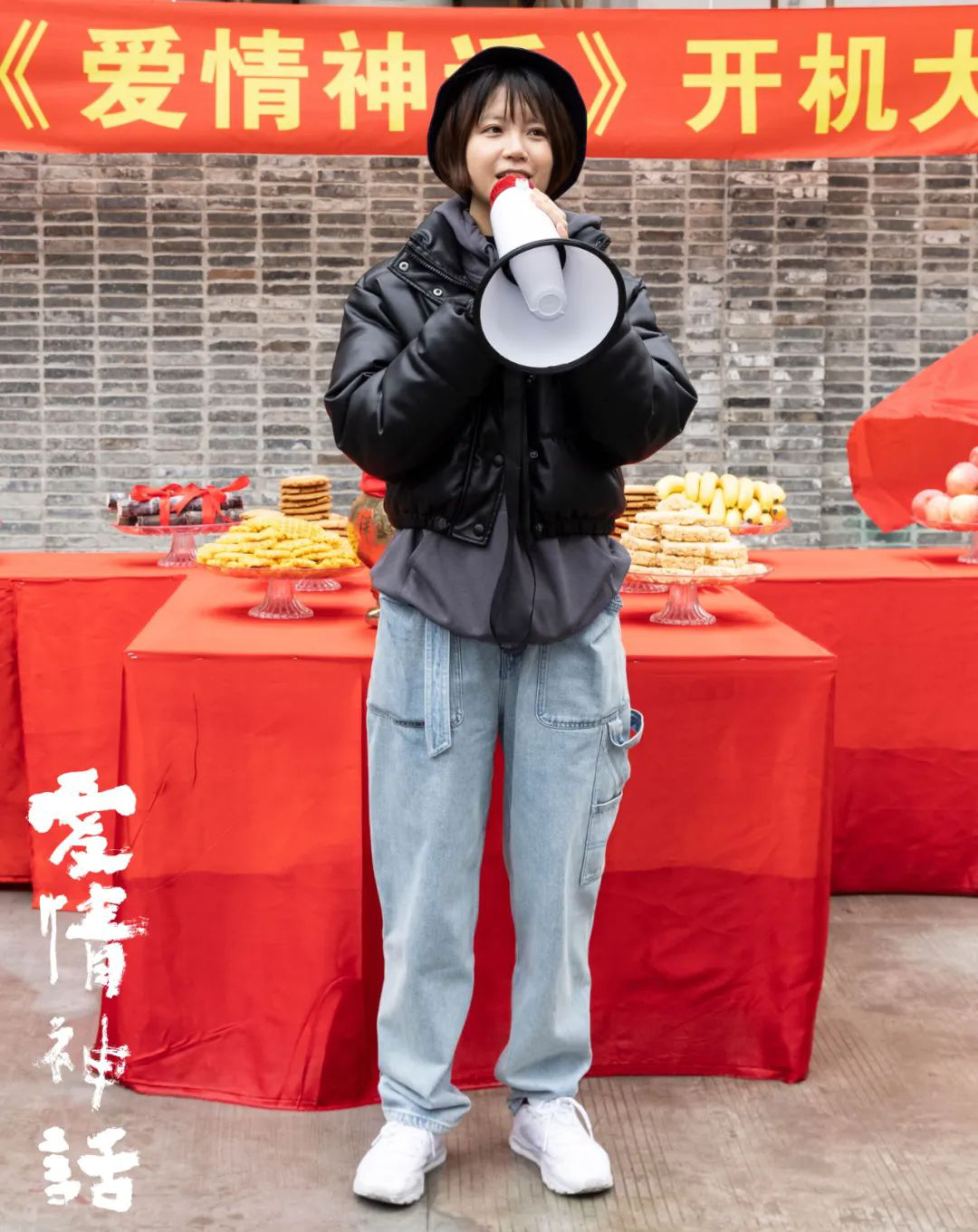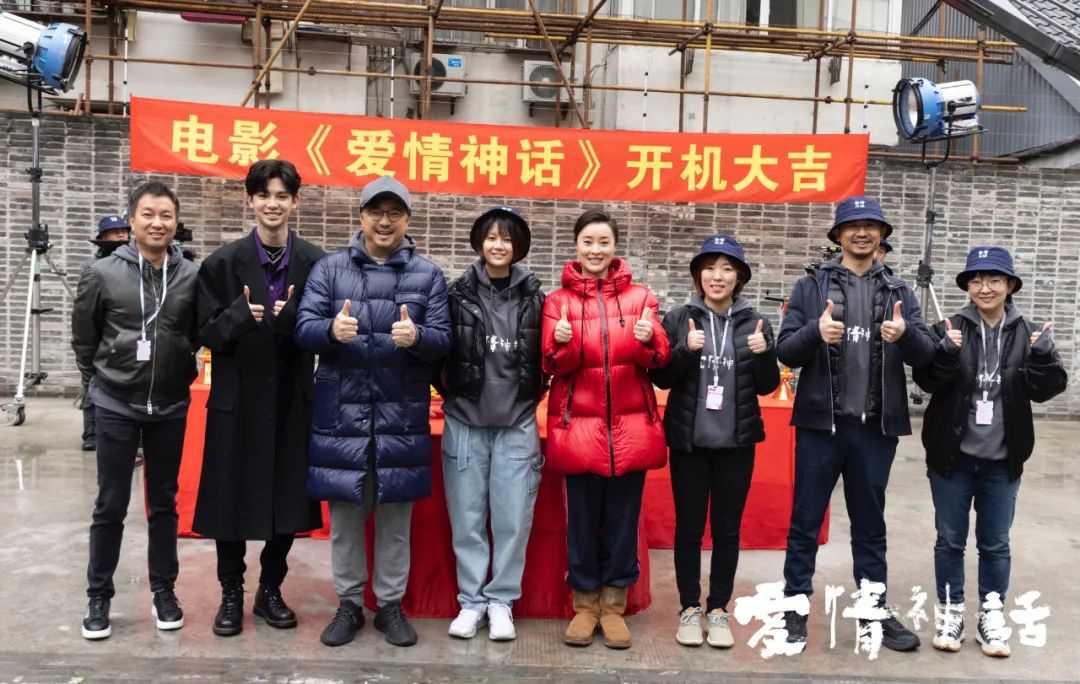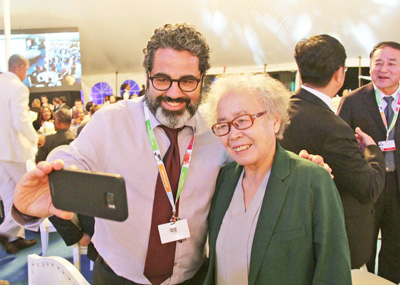I’m afraid Chinese didn’t know much about Yuan Shikai, but many people’s cognition of Yuan Shikai started from his training in Tianjin station after the Sino-Japanese War of 1894-1895, culminating in his "stealing the fruits of the Revolution of 1911" and becoming the president of the Republic of China. Finally, he restored the monarchy and died in the sound of the defection of the old cadres and the crusade of the revolutionary party. As for him, he was ordered to go to North Korea to support the current situation in the turbulence of East Asia in the late Qing Dynasty, and to save the three northeastern provinces and gradually stabilize the national political situation during the Ding Revolution in the Qing Dynasty and the Republic of China, etc., it has long been irrelevant in this historical narrative system with the theme of "stealing the country and stealing Yuan Shikai".
As for the fact that Yuan Shikai was stationed in Korea for ten years with the imperial rank of the Great Qing Dynasty, there have been many studies and evaluations in Chinese and foreign academic circles. Almost all the archives about the history at that time have already been made public, and they can be seen in archives or libraries in Chinese mainland, Taiwan Province and South Korea. In the eyes of many people, Yuan Shikai, who was stationed in the DPRK in the late Qing Dynasty, is almost the same as the supervisor stationed in the DPRK after the Japanese annexed Korea. It is the embodiment of China’s great power hegemony in North Korea, with the aim of controlling North Korea. The difference is just wrapped in a coat of traditional suzerain-vassal relationship. From the perspective of power politics, it seems that the argument that China pursued "imperialism" against North Korea in the late Qing Dynasty is conclusive, and Yuan Shikai is the vanguard and agent of China’s "imperialism", and his efforts to prevent North Korea from sending envoys to Europe and the United States have naturally become a series of external manifestations and appearances of the politics of these great powers.
Does Yuan Shikai, the prime minister in the DPRK, really have such great power? How did he become an imperial envoy?In fact, Yuan Shikai’s life in North Korea is not easy. He has been in the middle of the system to protect the outdated relationship between China and North Korea.. This article is not to "reverse the verdict" for Yuan Shikai, who has been plunged into eighteen layers of hell by China’s modern political discourse, but simply to talk about the cause of his embarrassing identity in North Korea, because it is this identity problem that led to his frequent conflicts with the North Korean government and diplomats from Japan, the United States and Europe, which weakened China’s diplomacy.
"Who am I": Chen Shutang’s troubles
Yuan Shikai led troops to North Korea for the first time during the mutiny in the summer of 1882, and in December 1884 he led troops to quell the coup staged by the Kaihua Party in North Korea, which won great appreciation from Li Hongzhang. In November 1885, under the strong recommendation of Li Zhongtang, Yuan Shikai was officially appointed by the Beijing court as "the prime minister of North Korea to negotiate trade matters", and he stayed in North Korea until the outbreak of the Sino-Japanese War of 1894. From entering the DPRK in 1882 to returning to China in 1894, Yuan Shikai has been in the DPRK for nearly thirteen years, including ten years as the above-mentioned "Prime Minister". However, before Yuan Shikai, Chen Shutang was the first official stationed in the DPRK by the Qing government, and to understand Yuan Shikai’s power, we must start with Chen Shutang.
After the mutiny in the summer of 1882, korean king asked the Chinese side to stay in the army, and sent capable people who were familiar with foreign affairs to North Korea to help North Korea with its foreign trade and customs. In September of the same year, the two sides signed the Charter of Land and Water Trade for Merchants, which stipulated that China and the DPRK should send commercial members to each other. This treaty was negotiated and signed at the request of North Korea, and it was put into operation long before the mutiny. In the autumn of 1882, China’s supervision on how to deal with foreign affairs and trade affairs in North Korea after the rebellion was gradually spread out according to the needs of North Korea. In November of the same year, Li Hongzhang sent Ma Jianzhong’s brother Ma Jianchang (that is, Ma Xiangbo) and Paul George von M?llendorff, a German who worked in Tianjin Customs and Taxation Department and German legation in China, to Seoul as a consultant to help the king organize the westernization. It is precisely because of this that the newly established Western-style customs tax system in North Korea is under the jurisdiction of the General Customs Tax Department in China, which is a branch of the customs system in China, and its annual report is attached to the report of the Customs Tax Department in China.
What we need to make clear is that,This series of guidance work, all within the framework of traditional suzerain-vassal, was handled by China as an "upper country" at the request of the "lower country" North Korea. Originally, China did not take the initiative to do it.. After North Korea opened its doors, there were almost no people who knew English and French. They didn’t know how to write diplomatic documents aimed at Europe, America and other countries, how to set up new customs and collect tariffs, and even how to formulate the style of their national flag. They were at a loss. The only thing they could rely on was China, who had been engaged in westernization for more than 20 years. For example, in 1882, North Korea signed a diplomatic treaty with the United States and Britain, mainly relying on the assistance and guidance of Ma Jianzhong and others. Later, according to superficial observation, many people came to the conclusion that this was the beginning of Li Hongzhang and others’ active intervention in Korean affairs, and that the traditional suzerain-vassal order ended. Such judgments are all caused by poor observation and are often sloppy.
At the beginning of 1883, Ma Jianchang and Mu Linde arrived in Seoul, and the consuls of the United States, Britain, Japan and other countries in the DPRK also poured in. Arrived at the same time, and China’s second-class title was Chen Shutang, whose official name was "Commissioned North Korean Commercial Committee", which was controlled by Beiyang Minister Li Hongzhang. Seoul, the quiet ancient capital of the "hermit country", became lively overnight and became a stage for diplomats from all over the world. But Chen Shutang couldn’t be happy, because his troubles may be the most among his peers, and the most deadly one is the relationship between China and North Korea, and he is unclear and unclear to his colleagues in Taixi. He wants to emphasize North China’s status as a vassal state, while the rest of his colleagues acknowledge China’s influence on North Korea and the special relationship between the two countries by default, but in public, they all recognize North Korea as an independent sovereign state.
Lucius Foote, the first American ambassador extraordinary and plenipotentiary to the DPRK, received an instruction from the Secretary of State in March of this year, which included instructions on the trilateral relations between the United States and the DPRK: the 1882 US-DPRK Treaty was a treaty between two independent sovereign States. As far as the United States is concerned, the DPRK is an independent sovereign state, but unless its own rights and interests are damaged, the United States will not interfere in the relations between China and the DPRK. In other words, the United States acquiesced in the existence of the suzerain-vassal relationship between China and North Korea, as long as it didn’t touch the American cake. This two-sided pragmatic diplomacy has also been imitated by countries such as Britain and Germany. In this way, the envoys of Britain, the United States and other countries in the DPRK did not really have diplomatic contacts with Chen Shutang, a commercial Commissioner, but contacted the newly established diplomatic department of the DPRK, the unified maintenance yamen, and those involved in Chinese businessmen were also handled through the unified management yamen.
As a result, Chen Shutang was left aside by the arrival of China, and his embarrassing position was repeatedly ridiculed by his British and Japanese counterparts. Chen Shutang’s response was to take out the Charter of Land and Water Trade for Merchants between China and North Korea to justify his power. He was accused that the foreword of the Charter was only applicable to China and North Korea, but not to other countries. At that time, the clever word game when China and North Korea signed the contract was really self-defeating at this time. Chen Shutang has repeatedly felt embarrassed and humiliated about this unclear question of "who am I", and repeatedly complained to Li Hongzhang.
In view of this, in 1884, when appointing the heads of the branches in Incheon, Wonsan and Busan, Chen Shutang specially appointed them as "directors for handling Chinese business affairs", giving them the right to negotiate foreign affairs beyond the commercial scope. In addition, although "director" and "consul" are similar in pronunciation in Chinese, they are totally different in nature. The former is the person in charge of a certain affairs internally, while the latter is a diplomat specializing in foreign affairs, while China cannot recognize that officials sent to its subordinate country, North Korea, are diplomats stationed in sovereign countries. Therefore, before the Sino-Japanese War, China had only directors in North Korea, but no consul, to show the unique authority of China and the special ethical relationship between China and North Korea.
At the same time, after consulting with American consuls Ford and Li Hongzhang, Chen Shutang changed his title to "General Manager of North Korea’s Trade Affairs" in November 1884, thus covering foreign affairs. This revision, Chen Shutang thinks, is quite in line with the "system" of the two countries, and even conforms to the identity of the "official of the country". Related to this, Cao Can, a commercial councilor and worker from North Korea stationed in Tianjin in April, 1884, sentenced Nan Tingzhe to "accompany the minister" to the China court, which is a typical language used by vassals and ministers to maintain the courtesies of vassals and vassals.
This time, Chen Shutang finally felt justified, but the ministers of various countries still had doubts about his new title, fearing that this was a sign that the China administration wanted to control the North Korean government. Parkes, the first British ambassador to the DPRK who had been in Beijing in his early years, asked the Prime Minister’s yamen to explain clearly what title Chen Shutang was. The Prime Minister’s yamen replied to him: "North China is a state, and it is not allowed to follow the example of ambassadors stationed in various countries … [Chen Shutang] is a Taoist, and he is equal to the consuls of various countries." That is to say, according to the bilateral articles of association between China and the DPRK in 1882, China’s commercial councilor stationed in the DPRK is equivalent to the consul general of western countries. This set the tone for China’s diplomatic status as a member in the DPRK in the future.
"Jiashen coup": China was unbeaten and defeated
However, the good times didn’t last long. Less than a month after Chen Shutang took up his new post, he met the Japanese-supported Korean Kaihua Party members Hong Yingzhi, Jin Yujun and Park Yong-hyo, who staged a coup on December 4, which coincided with the year of Jiashen in the lunar calendar, so it was called "Jiashen coup" or "Jiashen revolution" in history. The Kaihua Party occupied the palace, held the king hostage, killed Li Zuyuan, Zhao Ningxia, Min Yongmu and other pro-China ministers who tended to be "big", announced the abolition of the relationship between China and North Korea, and invited the Japanese army to enter the palace for support. At that time, Japan’s ambassador to the DPRK was Takeyuki Ichiro, a diplomat who accompanied Sen Youli to Beijing and Baoding eight years ago to debate the international status of the DPRK with the Prime Minister’s yamen and Li Hongzhang. However, the "revolution" of Zhu Tian and Jin Yujun, together with their Japanese troops, was defeated two days later by Wu Zhaoyou, commander-in-chief of the Qing army, and his deputies Yuan Shikai and Zhang Guangqian. A "three-day revolution" with swords and shadows failed.
China and Japan immediately started diplomatic negotiations, and in April 1885, they signed a special article in Tianjin with only three contents: both countries withdrew their troops from North Korea, and neither sent troops to coach the army in North Korea. If there is a major accident in North Korea, the two countries or one of them should know each other in advance. Through the content of the third paragraph, Japan has gained the same power as China to send troops into the DPRK in a critical situation.Later, in the Sino-Japanese War of 1885, Japan sent troops into the DPRK on the grounds that China had sent troops in the East School Party Rebellion, and its legal basis was the Tianjin Special Article in 1885. Therefore, as far as the result of diplomatic contest after the "Jiashen coup" is concerned, China is unbeaten and defeated, and Japan is invincible, which is very similar to the result of the contest and diplomatic negotiation between China and France in Vietnam around the Sino-Vietnamese suzerain-vassal relationship in the same period. All these examples show that China was not a weak country without diplomacy, but a weak country without diplomacy..
After this bloody affair, Ma Jianchang returned from North Korea and suggested to Li Hongzhang that China should either completely allow North Korea to go out independently and cut off the feudalism-vassal relationship with each other, or send an imperial agent to supervise its affairs. Li Hongzhang felt that China’s affairs were too complicated to give consideration to North Korea, but he was in favor of strengthening the power of China’s officials in the DPRK. In October 1885, Chen Shutang resigned and returned to China on the grounds of overwork. Li Hongzhang played in Beijing and recommended Yuan Shikai, who had been stationed in North Korea, to take over.
On October 28, 1885, Beiyang Minister Li Hongzhang recommended Yuan Shikai to take over the Korean trade affairs.
In the memorial, Li Hongzhang praised Yuan Shikai’s "courage and superiority, knowing the general situation" and suggested that Beijing appoint him as the post of "stationed in the DPRK Prime Minister to negotiate trade matters" in order to "slightly show the meaning of diplomacy" and "emphasize the power of affairs". Because Yuan Shikai is a knowledgeable person with five titles, and his official rank is relatively low, Li Hongzhang specially asked the court to increase the title in order to be an important official. Beijing soon formally appointed Yuan Shikai as "an imperial envoy stationed in the DPRK Prime Minister to negotiate trade matters" in early November, and awarded him three titles, which were distributed by the magistrate, and were supplemented when there was a shortage, and then promoted by Taoist priests.
Yuan Shikai was promoted to "use the Tao to supplement the magistrate". Later, people called him "Yuan Dao", which refers to the grade of "promoting Tao". Compared with his predecessor, Chen Shutang, Yuan Shikai’s official rank is low, but his power has been greatly improved: the title of "Imperial Envoy" made him gain the legitimacy of being stationed in the DPRK directly from the son of China, while the scope of supervision function of "Prime Minister" was broader than that of Chen Shutang’s "General Office", and "Negotiating trade matters" gave him the power to supervise diplomatic and commercial affairs. Since then, Yuan Shikai has become the prime minister of Yuan.
This year, Yuan Shikai was just 26 years old, and there was quite a spirit that newborn calves were not afraid of tigers. This spirit, to some extent, is just the wisdom outside the system that Li Hongzhang needs after he has been groping for more than 20 years in the westernization field. With this wisdom, he can reduce the constraints of a series of old cases between China and North Korea and new regulations between China and the West. Li Hongzhang is well aware of Yuan Shikai’s shortcomings in dealing with people’s lives, and he has praised Yolanda, but he hasn’t replaced Yuan Shikai for ten years. I’m afraid what he likes is Yuan Shikai’s double-edged sword.
On November 8, 1885, the Prime Minister’s yamen accepted Yuan Shikai’s sincere thanks for taking over North Korea’s trade.
Back to "Who am I": Prime Minister Qin Ming in the crevice
Premier Yuan’s life in North Korea was not smooth sailing, but the one that bothered me the most was that he couldn’t tell his diplomatic colleagues clearly about the relationship between China and North Korea. Although the position of his own appointed prime minister was clearly written in black and white, he had to face the old question of "who am I" in practice.
At that time, in Seoul, like Beijing, the ministers of various countries also formed a delegation, and the prevailing language was mainly English. The names and titles of the ministers of various countries all had corresponding English terms or translations. Yuan Shikai should also follow this convention, but he is not sure how to translate his title, which is related to the public mission’s cognition of his status and management authority.
Therefore, Yuan Shikai sent one of his young assistants who had studied in the United States, took a famous card to the American legation, found George Foulk, the acting minister, and asked his opinion. Fujiu suggested translating it into "charge of diplomatic and commercial course" (meaning "managing diplomatic and commercial affairs"). However, the young man disagreed. He proposed a word "Resident" (that is, resident) and suggested that it be translated into "His Imperial Chinese Majestic’s Resident, Seoul" (that is, "an imperial envoy of Emperor China in Seoul"). Fujiu then called the British Minister Edward Colborne Baber and the Japanese Acting Minister Kogoro Koping to discuss, but no agreement was reached. It is not a problem for Japanese diplomats to read and understand Chinese, so this kind of translation work is actually for the envoys of non-Chinese-speaking countries such as the United States, Britain and France, which is directly related to the fundamental understanding of Yuan Shikai’s position in the West.
Finally, Yuan Shikai adopted his assistant’s translation, "His Imperial Chinese Majestic’s Residency, Seoul", and simplified it to "H.I.C.M. Residency". Later, this name began to be printed on business cards. In fact, this English translation only conveyed the intention of the imperial envoy, but did not explain his power and responsibility to negotiate and trade. Therefore, Yuan Shikai didn’t make clear the question of "who am I", but his colleagues in the envoy group simply regarded him as "Consul General of China with diplomatic functions".
The official document printed with Yuan Shikai’s "Qin Ming’s order to station the DPRK Prime Minister to negotiate trade matters" (currently in the archives of the Institute of Modern History of Taiwan Province Academia Sinica).
Next, how to carry out the etiquette with North Korea has become a problem, especially when meeting korean king. At the beginning of his tenure, Yuan Shikai sent a telegram to Li Hongzhang asking what he should do to meet korean king. Yuan Shikai is an imperial envoy at this time, but in the system of suzerain and vassal, the imperial envoy is on behalf of the emperor. Since the king is the son of the emperor, it is inevitable to follow the traditional etiquette of receiving and conferring titles or offering sacrifices to the emperor. However, Yuan Shikai’s problem lies in that he is not an envoy in the vassal-vassal system sent by the Manchu court, but a resident in the newly established diplomatic system, and he just went through a process of honoring his life.
Yuan Shikai mentioned that when China’s officials in the DPRK visited korean king, they entered the palace gate in a sedan chair, bowed three times, and then sat on the side of the king. However, before Wu Changqing, Xu Chang, Ding Ruchang, Ma Jianzhong and others visited the king, they all sat down with each other. Envoys from other countries perform the so-called "foreign courtesies" and only go outside the palace gate by sedan chair. Yuan Shikai is still sitting on his side, but he is very upset because he has no rules and regulations, which leads to "talking with others from time to time"
Li Hongzhang quickly instructed Yuan Shikai: North China is a subordinate country, so the etiquette of meeting the king should be slightly different from that of other countries’ envoys, but it can’t follow the imperial envoys of Wu Changqing and Xuchang. Therefore, Yuan Shikai should get off the sedan chair outside the palace gate according to the ritual system of the official audience with the king of the county, and still bow three times when he meets the king, which is "extremely humble"; If you encounter a big ceremony in North Korea, "you can only bow three times and bow three times, and you should be modest." In this way, Yuan Shikai has a new set of etiquette in the DPRK, which is different from other countries’ envoys in the DPRK. The purpose is to preserve the suzerain-vassal system and never lower China to the same status as Britain, the United States and Japan.
Yuan Shikai’s crisis of etiquette has been solved, but in the eyes of his Japanese and European and American counterparts, all the courtesy privileges he enjoyed in going to China were acts that undermined North Korea’s sovereignty, and now he could not tolerate them. Therefore, the contradiction between Yuan Shikai and Yuan Shikai has never stopped, and even intensified.
When many people explain the relationship between China and North Korea in the late Qing Dynasty, they all regard it as the relationship between two countries. This is very reasonable, butAccording to a series of documents of Li Hongzhang and others in this period, they directly crossed the patriarchal feudalism between China and North Korea in the early Ming Dynasty and traced it back to the Western Zhou Dynasty. Then korean king was just a foreign vassal of the Emperor of China, and his status was equivalent to that of the governor of China. So in this sense, korean king was just a vassal who defended the territory on behalf of the Emperor of, and all over the world, it was not the king’s land, and North Korea was just one of the Chinese empires.. As revealed by the above-mentioned etiquette problems, Li Hongzhang regarded korean king as the "pro-county king" level within the China system, rather than the head of state of an independent country. Therefore, Yuan Shikai’s etiquette was also within the China’s vassal etiquette system. It is precisely for this reason that observing and analyzing the relationship between China and North Korea in the late Qing Dynasty with the international political concept imported from Europe can not cover the whole system at all, but can only observe part of it; Moreover, the later the starting point of observation is, the more serious the deviation from historical truth is.
Premier Yuan’s etiquette problems have been solved in turn, and it seems that everything is peaceful, butHe found that he actually fell into the cracks of the dual system, although he could have both ends meet, but it was not easy to handle. On the one hand, the legitimacy of his identity comes from the authority of the country in the system of suzerain and vassal, but he is not a person in the system of imperial envoys centered on Manchu court; On the other hand, he is the watchtower of the new diplomatic system of the Prime Minister’s yamen and Beiyang Minister, but his authority in North Korea is not based on this system.. For this dilemma, neither he nor Li Hongzhang, nor the Premier’s yamen and official department in Beijing, nor even the Beijing Ritual Department and the imperial court can solve it unless it is withdrawn to China, which is an impossible option in the historical situation at that time.Yuan Shikai, like a pawn crossing the river, is as powerful as a horse in North Korea, but the fatal place is that he can only move forward wholeheartedly and cannot retreat..
At the beginning of his tenure, Yuan Shikai told Beijing that he wanted to protect the suzerain-vassal relationship between China and North Korea and protect the "oriental shield" of North Korea, and he did it diligently. But alsoIt is in this kind of institutional gap that he refused to attend the diplomatic mission meeting of the United States, Britain, Japan and other ministers in Seoul on the grounds that things between China and North Korea were customized and rituals were established, and he independently exercised a set of suzerain-vassal rules that only he enjoyed, and even directly intervened in the relevant affairs of the North Korean government as an imperial envoy.. As a result, his defense of the suzerain-vassal constitution was regarded by others as maverick and undermined North Korea’s right to independence, and the courtesy he received as an imperial envoy also became domineering and contrary to international diplomatic norms. In the end, it not only aroused suspicion and criticism from diplomatic colleagues such as Britain, the United States and Japan, but also gradually caused dissatisfaction and alienation from the North Korean government, which was gradually conscious of national sovereignty.
Yuan Shikai, who is the prime minister appointed by China, has gradually become the loneliest person in North Korea’s diplomatic arena.
On July 18th, 1894, Yuan Shikai withdrew to China by order. On July 23rd, two days before the Japanese army attacked the Qing army in Asan and started a war, the China office in Seoul was suddenly besieged and looted by thousands of Japanese troops, and the bank deposit was robbed, and the national flag was taken away. Tang Shaoyi, the acting prime minister of North Korea, fled to the British consulate from the backyard of the office, burned confidential official documents (some documents were kept in the British consulate), and then returned to Yantai, bringing back the seal of "Qin Ming stationed in North Korea to negotiate trade matters" left by Yuan Shikai. Yuan Shikai’s ten-year painstaking career in Dongchao Fan has since vanished into thin air.
